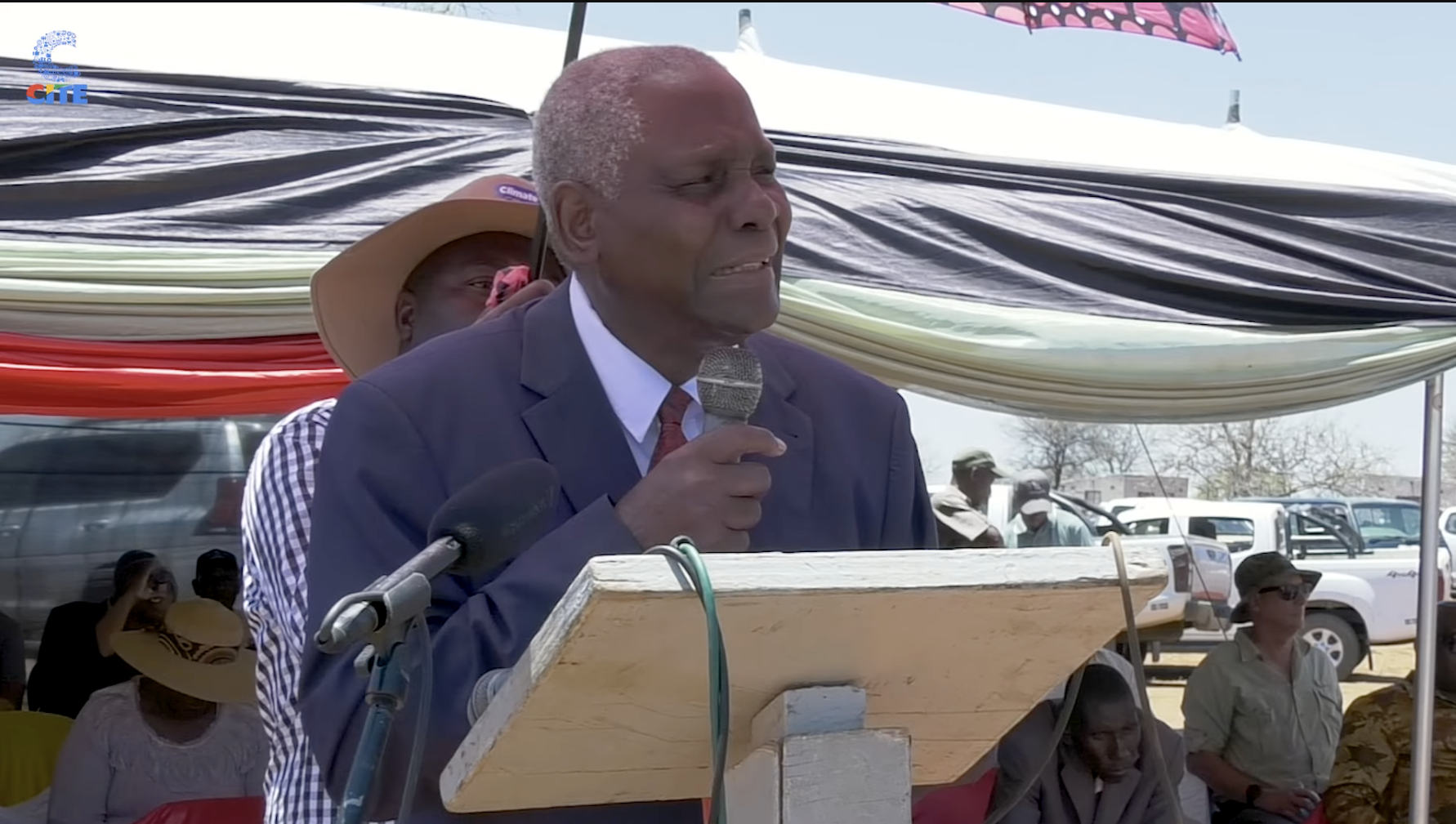Chief Mtshane Khumalo, President of the Chiefs Council, has urged the family of the late Chief Marupi to honour cultural traditions in selecting his successor.
Chief Khumalo made this appeal at Chief Marupi’s burial ceremony, which was held at his homestead on Wednesday.
Chief Marupi, one of Matabeleland Province’s shortest-serving leaders, passed away on October 20 at age 28, following a decade-long tenure that began with his appointment as Chief on September 9, 2011, when he was just 15 years old.
As the Chief Mourner, Chief Khumalo expressed deep sorrow over Chief Marupi’s untimely death, which followed the recent theft of his vehicle, still a concern within the community.
“I worked with him for many years,” said Chief Khumalo. “We met often, whether in Harare or at various meetings and workshops. We were just coming to terms with the issue of his stolen vehicle when we received this sad news. But we must accept God’s will and thank the family for organizing this moment for him to rest.”
Chief Khumalo said there is a need for cultural adherence in the succession process, urging the Marupi family to avoid the conflicts that sometimes arise in leadership transitions.
“We hope the Marupi family won’t be like some who fall into prolonged disputes after a chief’s passing,” he said. “Traditionally, a successor is chosen from the sons or, if necessary, a brother. Our cultural practices are clear and not meant for conflict.”
He further urged the community to respect the family’s role in decision-making and refrain from interference.
“Often, we as villagers are the ones who mislead families,” Chief Khumalo advised. “Let’s guide them instead, making it easier for them to choose someone to carry on after their loss.”
Chief Khumalo noted that, traditionally, a one-year mourning period is observed before discussions on succession, though the family may choose to act sooner. He warned that if more than two years pass without a decision, the responsibility to appoint a chief could fall to the Minister, bypassing traditional practices.
“The role of choosing a Chief should remain within the family and with the assistance of local chiefs,” he said, “so that cultural values are upheld even in times of conflict.”

